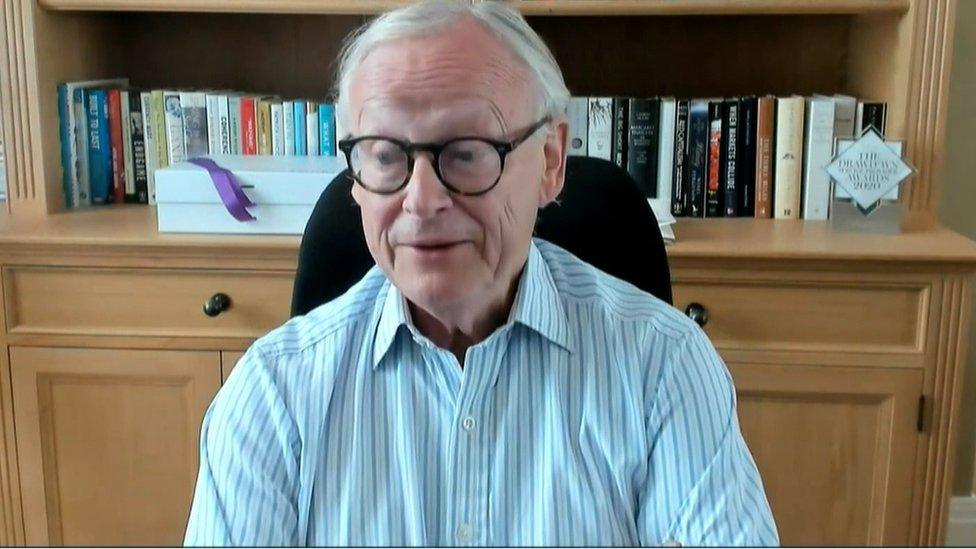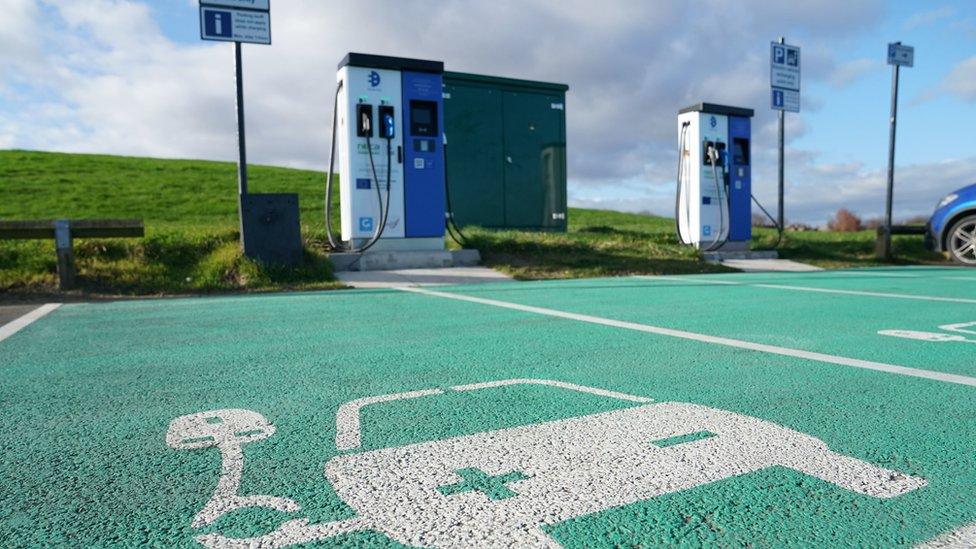Climate change: Unrealistic NI emissions target 'morally wrong'
- Published

The head of a climate advisory body has said it would be "morally wrong" for NI to be set a target for cutting emissions that it cannot reach.
Lord Deben, chairman of the UK's Climate Change Committee, was giving evidence to a Stormont scrutiny committee on Thursday.
The government body is examining proposals for Northern Ireland's first climate change bill.
The bill would create a target of net zero emissions by 2045.
Agriculture and Environment Minister Edwin Poots has opposed the bill, claiming it would have a detrimental impact on agri-food, Northern Ireland's biggest emitting sector.

Lord Deben, chairman of the UK's Climate Change Committee, was giving evidence to a Stormont committee
He is preparing separate legislation based on recommendations from Lord Deben's committee.
It has advised a cut of at least 82% in greenhouse gas emissions in Northern Ireland by 2050, as part of a wider UK target of net zero.
Cut would be 'bloody difficult'
It said it had taken into account the economic reliance on agriculture and the fact that Northern Ireland exports much of the food it produces to the rest of the UK.
Lord Deben said the cut of at least 82% he had proposed would be "bloody difficult" and was the highest he could demand "in the present circumstances", although it could be reviewed if those circumstances changed.
"But I don't think it helps anybody to aim at something, when all the research which has been done by very significant people, working hard to get it right, says is not possible."

Minister Edwin Poots and farming leaders have opposed the climate bill
Meanwhile, it has emerged that Mr Poots' climate legislation is now with the minister and will proceed if he can get it onto the executive agenda for approval.
Departmental officials told the scrutiny committee that there was nothing to stop the two climate bills running alongside one another through the legislative process.
One official said legal advice had been taken on the issue and there were elements of both bills which could complement one another.
"The simple answer is that it's massively complicated, yes the two bills can go and it wouldn't be as simple as saying that one supersedes the other."
- Published10 May 2021

- Published23 March 2021
